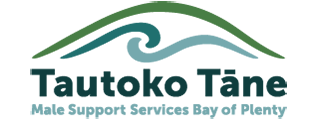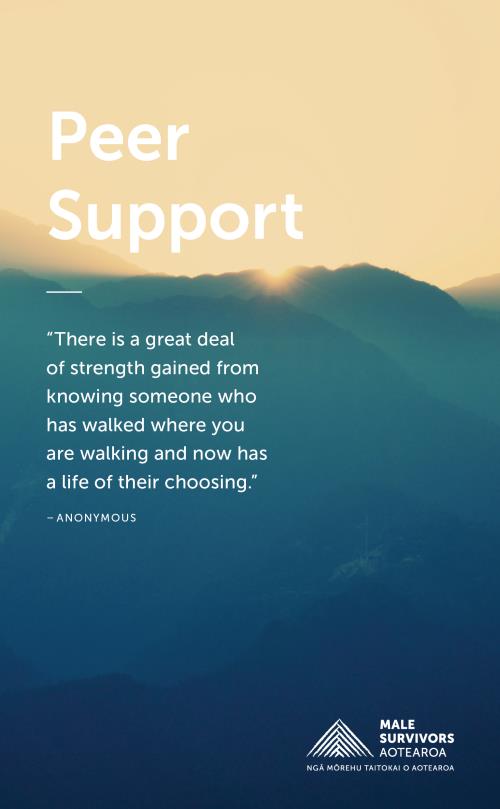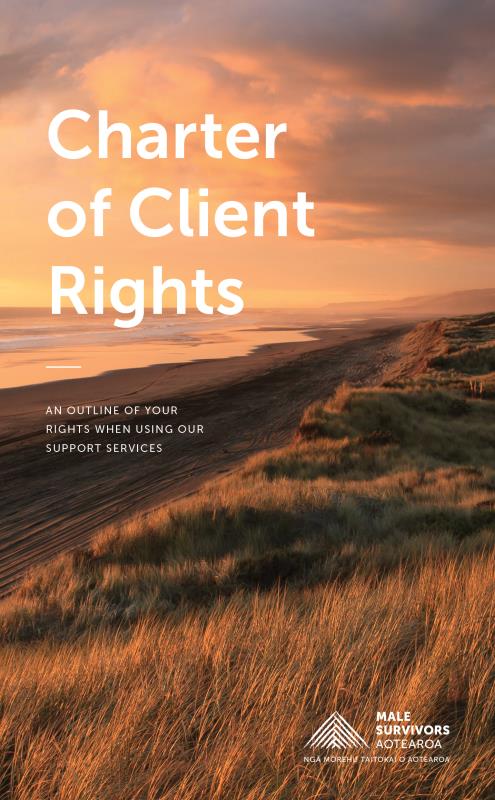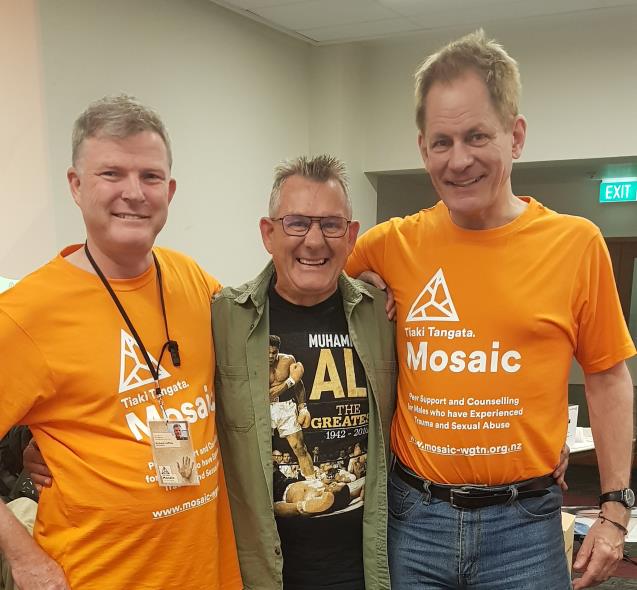Don’t be afraid to take an unfamiliar path Sometimes they’re the ones that take you to the best places
– Unknown
Kia ora koutou,
An Essential Service – Navigating Covid-19
At this time of uncertainty, it is important to reflect on the roles that we all play in enabling and assuring the wellbeing of male survivors of sexual violence and to consider how we can continue this work in an operating environment that is increasingly threatened by the health risks associated with the COVID-19 virus.
While the challenge of finding new ways to provide support to our survivor-client communities may be daunting, I am encouraged in the belief that this enquiry is likely to result in longer term benefits. I believe we are likely to discover and enable new ways of supporting our clients that may become future ‘business as usual’ – travelling “unfamiliar paths to find better places” so to speak.
I am reminded about the essential nature of the work we do by a quote from our recently published Peer Support brochure…
We are all social beings by nature – connectedness and community are necessary if not vital to our wellbeing. The very existence of positive social relationships can be a source of healing for many psychological wounds
The potential for our peer support services to build and sustain these enabling social relationships is embraced by the following quotation from the same publication…
There is a great deal of strength in knowing someone who has walked where you are walking and now has a life of their choosing
And so, we know that the work we do must continue if we are to support our clients to cope with the additionally stressful challenges that COVID-19 will present to many of them.
As we all feel the expanding impacts of the spread of COVID-19 throughout our communities and begin to deal with the practical realities of self-isolation and physical-distancing, I am particularly concerned about the impacts of these necessary constraints on our male survivor community – including our peer workers, counsellors and social workers who support them.
The challenge we all face is how to sustain the social connections that we know are so critical to maintaining the capacity of many survivors to navigate their daily lives and keep ‘moving forward’ on their own recovery journeys.
The challenge for our peer-workers, counsellors and social workers is to find new ways of working that not only ensure their own wellbeing but also assure the health and safety of our survivor-clients. We are already implementing the more obvious solutions by enabling our people to work from home and establishing virtual service connections (email, text, chat, skype, zoom etc.) that avoid face to face and group meeting situations.
While this way of working responds to the need to contain COVID-19 and suppress community transmission it presents particular service challenges for our support centres:
- Not all of our clients have easy access to the technologies (mobile phones, internet, computers etc.) that enable and support remote contact;
- Physical (albeit distanced) contact will remain an important mode of social connection for many clients;
- Many of our clients will be additionally stressed by COVID-19 impacts with the likelihood that they will need additional support;
- The availability and capacity of our employees, volunteers and contractors to provide support is also likely to be affected by the impacts of COVID-19; and
- Not all of our service centres and/or our people may be appropriately equipped to support a virtual service environment.
This situation has become more challenging as we move to level four containment where most people are required to remain at home. This is clearly the right decision and Jacinda Adern and her team should be congratulated for their exemplary leadership at this is challenging time. However, this measure will inevitably cause significant economic and social disruption for many people and particularly for the communities that we serve on a daily basis.
I appreciate that there is no obvious ‘one-size-fits-all’ solution for our support centres who all face their own resource constraints and deal with client communities that have different demographics and different service support requirements. However, I remain optimistic and confident that given our past record of overcoming challenges in our 20-year quest to support male survivors we will ‘find a way’ to successfully navigate the current situation.
I can only encourage us all to keep our shared purpose in the forefront – enabling the wellbeing of male survivors – as we try to develop solutions that are relevant for our own situations and to share new ways of working with our clients and with each other. I encourage you to engage with your trustees, funders and service providers who also have a part to play in finding ways to activate and support the solutions you develop. And to collaborate with other organisations that work in the sexual violence sector that are also challenged to provide ongoing service relevance and continuity.
As we consider our approach to navigating this time of uncertainty, we could use the following checklist as a guide:
✓ Conform strictly with official Government COVID-19 policies and guidelines as they apply to your people and client-services;
- Workplace response to coronavirus (COVID-19) Government Employment Guide Covid-19
- Ministry of Social Development Programs MSD Information on Covid-19
✓ Assure the primary safety and wellbeing of our people and our client communities;
- Enable and support our people (peer workers, counsellors and social workers) to operate within a safe environment; support their wellbeing with appropriate care, supervision and co-reflection activities;
- Enable and support our clients to access services in a way that assures their safety and promotes their wellbeing, remembering that our peer support principle of self-determination means that we can influence but not direct their decisions.
✓ Maintain, as far as practicable, the opportunities for social connections and social networking that sustain the wellbeing of our clients:
- Ensure that our people have the technologies and tools they need to work remotely – in particular to deliver one-on-one support sessions and facilitate on-line group meetings;
- Find ways to ensure that our clients have access to the tools and technologies that will enable them to participate in remote support services, for example access to mobile phones and plan top-ups, access to on line sessions etc.;
✓ Carefully transition our people and clients to new support services in a way that sustains their service relationships and social connections:
- Whenever we shut a client service doorway, always open another services window, for example:
- Replace cancelled peer support group meetings with options for remote one-on-one and/or on-line support groups;
- Balance reduced opportunities for client drop-in access to personal services with increased access to ‘safe’ client service-centres (including access to necessary facilities, including technology).
- Keep in mind the right of our clients to choose their own recovery pathway, but also remember our obligation to ensure that those choices do not put others at risk, for example:
- In service situations where we can assure the safety of our own people but not our clients (e.g. clients decide to hold their own peer group meeting) we need to balance our obligations to advise our clients with their rights to make their own choices.
✓ Resource increased focus on maintaining client-service connections and follow-up activities:
- Ensure that our people have adequate capacity (time and resources) to make sure that our clients know we are still available to support them… that we continue to care about their wellbeing:
- Acknowledge that the required shift in service response will most likely require increased one-on-one and administrative time and resource this accordingly;
- Set contact targets that are focused on not losing track of clients who may fall below the radar and recognise that this is a longer-term investment in client wellbeing and likely to impact the available contact time for current clients in the medium term.
- Make sure that we listen to our clients and adapt our services to respond to their changing needs:
- Increase the focus on client feedback; be aware of their changing circumstances; capture their response to service change; and always be prepared to adapt
✓ Prepare for increased support needs as the current situation prompts more people to seek our help:
- Maintain service accessibility:
- Ensure that our normal call facilities are available appropriately staffed; and
- Think about those people who may not be able to easily access us and how we can be available to support them.
- Plan for extra resource requirements – people, technology and client support funding
It is paramount that we remain ‘in contact’ with our survivor-clients and find ways to continue supporting them through this challenging and stressful time
Our National Agenda
While we are now operating in a rapidly changing and uncertain environment, the national organisation is continuing to forge ahead with the implementation of its longer-term strategic agenda. With the obvious caveat that our plan timeframes are subject to the unknown impacts of Covid-19, the following brief snapshot of our current focus and the status of our key initiatives will give you some assurance that, although constrained, the national body is very much alive and well.
Funding F2021- F2023
All MSA policies have now been approved as appropriate to support the MSD Level Two accreditation required for contracting funding for the next three fiscal years (2021-23). All existing member organisations should have been contacted by their regional MSD contract managers and should be in the process of achieving Level 2 accreditation.
MSA policies can be uplifted from the website or referenced as required. Where they require modification for local application, MS Word copies can be provided, except for national policies and guidelines that are not subject to modification – e.g. MSA peer support guidelines and standards.
The national Board would like to acknowledge our MSD support team, in particular Rick Manley and Waylon Edwards who have been most helpful in facilitating our funding allocations for the next three years and also sourcing additional funding for our Kia Mārire strategy.
Regional Development
We are on track to complete the implementation of our national network of service centres with plans to establish new member organisations in the following regions:
- Tai Tokerau: We have completed our initial consultation with 12 Northland based organisations and are currently working to establish a service centre in Kerikeri. We have identified suitable premises and are currently recruiting trustees and staff with a view to being established by June 2020 with and official launch planned for August-September;
- Taranaki: We are seeking to establish a service centre in New Plymouth. We have recruited a Manager for the centre and are currently interviewing trustees and we plan to have with similar opening and launch dates as for Tai Tokerau;
- Hawkes Bay & Gisborne: We are currently exploring partnering opportunities to establish a service centre in Hawkes Bay.
We also expect to begin planning for our expansion within Auckland in July. This will be a collaborative planning exercise involving appropriate people from MSD, Better Blokes and MSA and will result in a funded strategy to extend our services reach across the Auckland region.
Kia Mārire – Effectiveness with Māori
We are awaiting final confirmation of the funding allocated to this national strategy to begin the recruitment of our Pouārahi Māori. With our Rōpu Tautoko1 (an advisory committee to the MSA Board) already in place we are hopeful that this strategy can be launched to enable and support our entry in Tai Tokerau
Committee for Survivors
The national trustees have decided that the composition of this important Board Committee is most appropriately made up of the Managers of all of our Member Organisations – in effect our service delivery leadership team. The committee is now formed and details can be found on the national website – [MSA Committee for Survivors]. We are hopeful that this committee will have its inaugural meeting in May.
National Training Program
We were privileged to welcome Shery Mead and her partner to join the 12 participants our advanced IPS training program which was held in Nelson in February.
Shery is the person who developed IPS, a program she has been championing internationally for many years.
We are planning another introductory course in July for which we already have 12 participants. Please contact us if you have appropriate people for registration. And we are continuing to work with Better Blokes exploring the possibilities for a national peer group facilitation training program.
1 The Ropu Tautoko members are: Ta Mark Solomon, Shane Graham, Dr. Oliver Sutherland, Dr. Lorraine Eade, Inspector Dexter Traill,
National Communications
We are very proud of the two new additions to our national publications – our Peer Support booklet and our Charter of Client Rights. Both publications are primarily focused on a male survivor audience but the peer support booklet is also a useful marketing tool to promote and explain peer support to other people.
The first version of the peer support booklet has been distributed free of charge to all membership organisations and will soon be reprinted with a Te Reo translation. The Charter, which will also be distributed free of charge will be available in April and will include a Te Reo translation.
We will also be updating the posters we distributed recently to include a Māori survivor image and to make these posters available in an A4 size.
National Research
We are making slower than expected progress with our national research project. So far, we only have 50 of the required 100 participants. If you know of survivors who would be prepared to contribute by completing a questionnaire and potentially participating in a focus group, please contact your local service manager or email me directly [[email protected]]
National Quality Assurance
The Covid-19 virus will interrupt our national quality assurance review of peer-worker supervision, which is now unlikely to be completed until the fourth quarter of this calendar year. Mike Cagney (National Trustee), who has recently completed his review with Better Blokes (Auckland) confirms that the exercise is proving useful both in terms of quality assuring the policy, but also as an education exercise for membership governance and management teams as well as the peer workers involved.
Other Events
Congratulations to the MOSAIC team on the staging of a very successful symposium on “Male Trauma and Sexual Abuse Recovery”. It was not only a very instructive event for all participants, but it also provided an important inter-services networking opportunity and a useful platform for encouraging inter-disciplinary dialogue.
The symposium was an initiative of Richard Jeffery (MOSAIC) (left), lead facilitated the well-known trauma specialist Rick Goodwin (right) with MSA represented by the ‘boxer’ in the middle – Ken Clearwater (National Advocate)
Dealing with male trauma generally is becoming an increasingly important aspect of our national services agenda and one that we intend to focus more on in the future. And we look forward to opportunities for MSA to co-host more national educational events that inform, and thus enable, our people and our collaborators to improve the services we can offer to our male survivor community across Aotearoa
On behalf of my fellow trustees,
Noho ora mai
Philip Chapman
Chair
Ngā mihi o te wā me te Tau Hou
Please look after yourself, your teams, your family and friends and our survivors
Download report as a PDF



